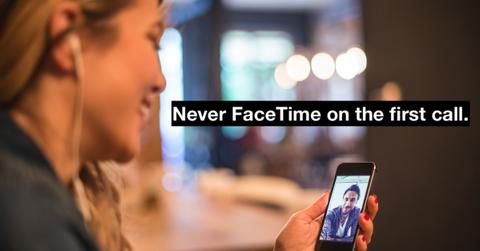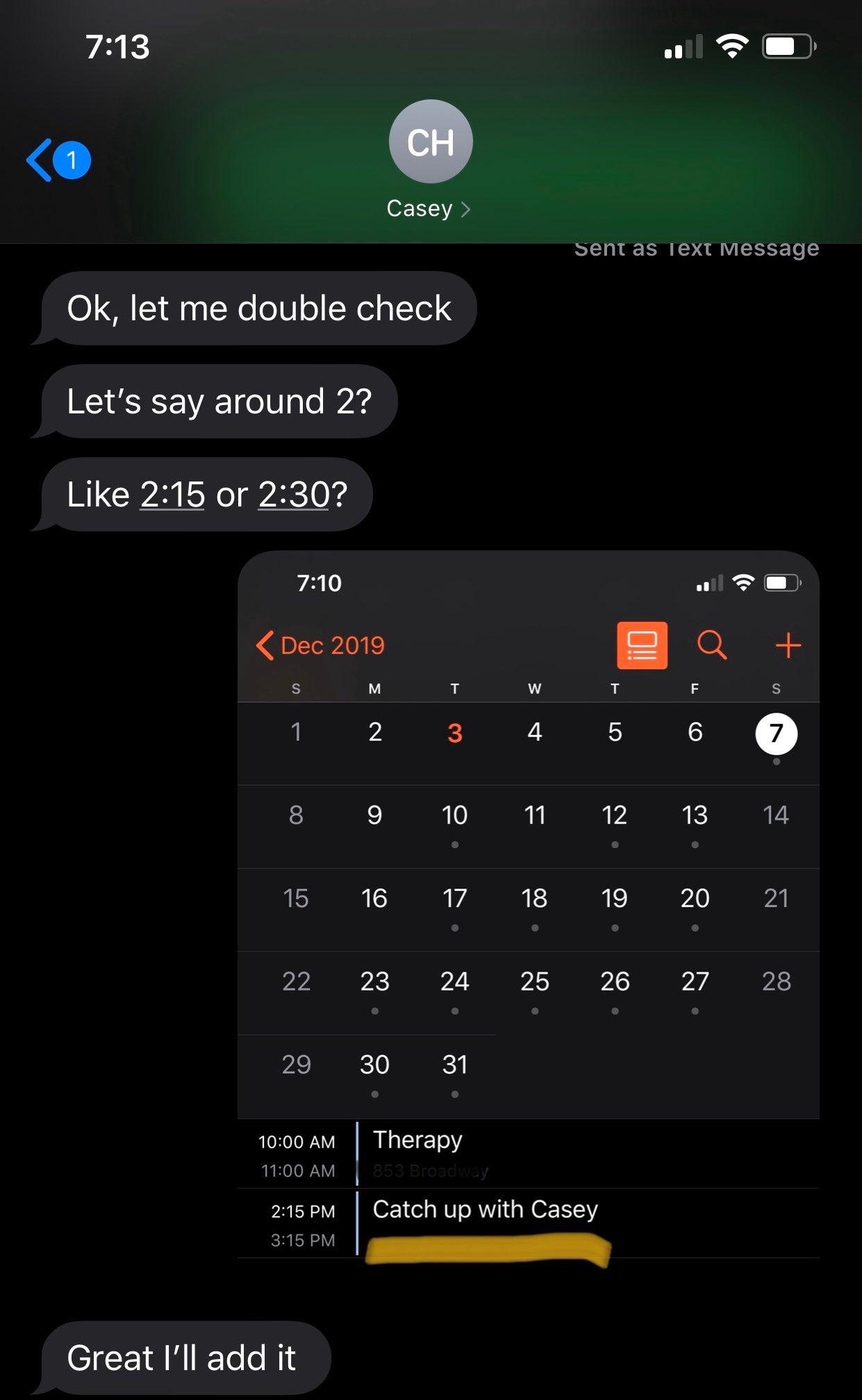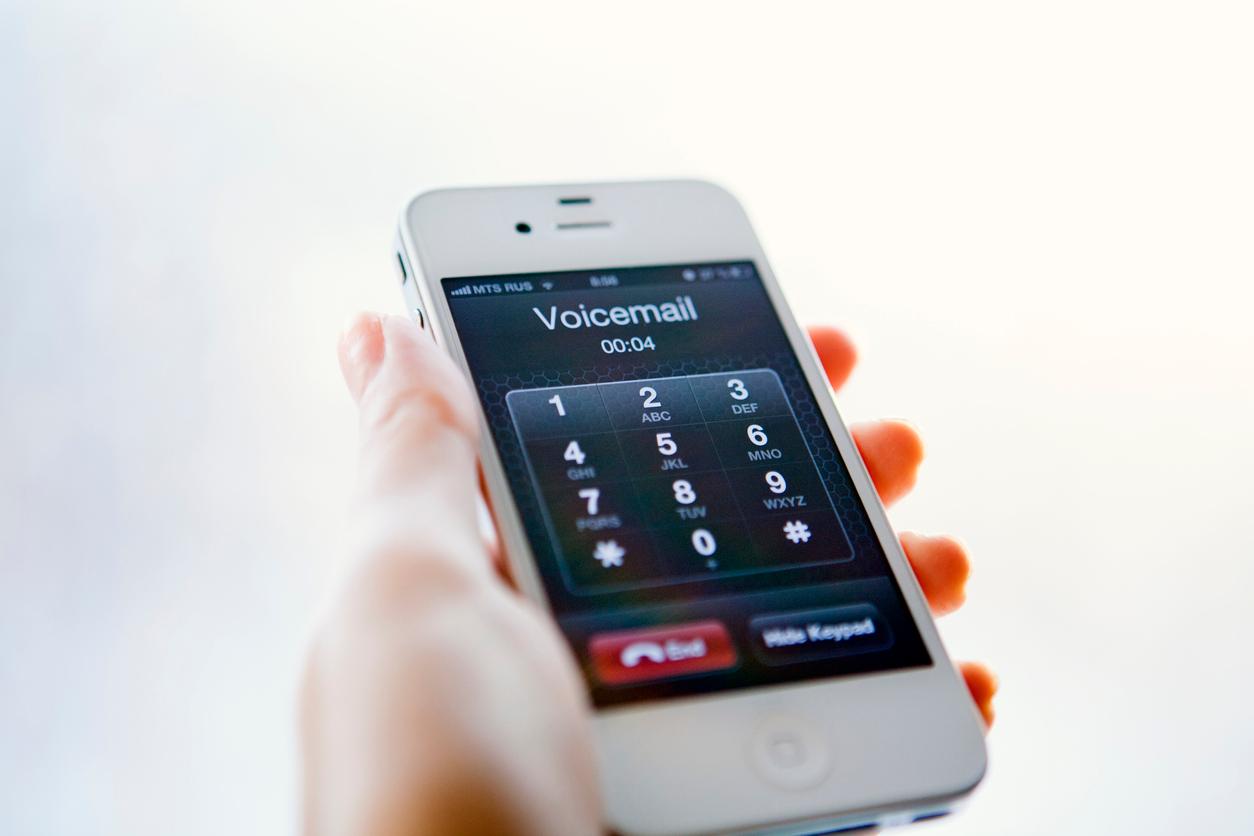Digital Etiquette Rules That You May Accidentally Be Breaking
Updated Jan. 23 2020, 4:53 p.m. ET

Having grown up the '90s, I remember a time before everyone had cellphones when, if you wanted to talk to your friends after school, you called them on a landline and then recapped everything you just did all day for roughly three hours. Nowadays, if somebody calls me out of the blue, I think there's been an accident.
Technology is changing every day, and so too are the unspoken rules we all agree to regarding what is rude or passé or annoying. According to that almighty authority known as people on the Internet, these are the digital etiquette rules you need to follow in your professional and personal life.
1. Avoid periods in text messages
When you're sending long texts describing the events of the day or telling an anecdote, traditional punctuation can be helpful for clarity. But in shorter exchanges, don't use a period, lest you come off as overly formal at best and, at worst, rude or angry. Linguists' research concludes that the formality of a period can seem insincere, sarcastic, or curt. In the year 2020, perhaps the rudest text message anyone could receive, for example, is, "K."
2. Schedule your phone calls

This is a real text exchange I had with a friend recently.
Look, chatty Chesters, I don't make the rules, I'm just laying them out here. Unless the person you're calling is someone accustomed to receiving spontaneous calls from you — you know, like a parent, significant other, or best friend — you are probably annoying or even alarming people when you call them without a heads up via text. Even with my spouse or BFF, I tend to drop a quick "hey, is it OK if I give you a call in a minute?" If I didn't, I'm 99 percent sure they'd answer with, "What's wrong?!" That's how infrequently we communicate by voice call.
Plus, planning longer phone conversations tends to make the call more meaningful or productive. When both parties are able to block out the time to focus on each other, they are more likely to be fully engaged and not just saying "mm hmm" absent-mindedly while they're in the middle of doing three other things.
3. If no one answers, don't leave a voicemail

I'd venture that at least 50 percent of all voicemails are never listened to. What can be particularly annoying about a voicemail is when it contains important information the recipient needs to write down, such as an address or phone number. A text or email is much preferable. That way every important piece of information, whether it's the time and location of an event or a callback number, is already written down.
4. Answer texts ASAP
Nearly everyone has their phone within 5 feet of their face at all times, so nobody believes you when you reply to a text a day and a half later with, "sorry, just seeing this!" Unless you were on safari or a space mission, it just seems unlikely. If you are pressed and don't have an immediate answer or need more time to craft a more careful response, just shoot back a quick, "got it — a bit tied up right now but i'll hit you back later to talk more."
5. ALL-CAPS IS SHOUTING
I don't know who needs to hear this in 2020, but turn your caps lock off. Messages in all caps are the equivalent of yelling at someone, so unless they just told you they're pregnant with triplets (CONGRATS!) or just drove your car into a ravine (WHAT?!), there's absolutely no reason to shout.
6. Think before you reply-all
When everyone replies all in a thread, it can grind the workday to a halt. Carefully consider whether the entire email list really needs to hear your two cents. But some blame can belong to people sending emails to large groups. If your message requires discussion and input from multiple parties in the chain, consider scheduling a meeting or taking the conversation to a group messaging app like Slack.
7. Emojis are more than OK — they're essential

'The Emoji Movie,' on the other hand, is not essential.
Text can be a very limiting medium for conveying tone and intent, but it's also the most convenient and preferred method of communication in so many situations. You may think a smiley face comes off as unprofessional in an email to your boss or subordinates, but it can prevent so much unnecessary worry or misunderstanding. Just maybe steer clear of the eggplant, peach, and poop emojis unless you want a 👎 from HR.
8. Using speakerphone in public spaces is evil

This goes for listening to audio or video content on your phone as well. If you don't have headphones or a hands-free headset, take your phone somewhere more private, please! While eavesdropping can be fun on one's own terms, it sucks to be forced to overhear somebody's inane phone call or to endure Justin Bieber's "Yummy" for the 400th time in one day without consent.
9. Be discerning with your group texts
Most people under 40 have at least one group text for their family or friend group, and it's a great way to organize gatherings and check in with occasional funny memes and observations. But they can quickly become a nuisance if they're popping at all hours of the day, especially during work hours, so don't abuse it! And I would advise against adding someone to a group text unless you're absolutely sure they're going to be nothing short of delighted to receive random GIFs from 8 different phone numbers at any hour of the night.
10. Don't surprise FaceTime people

Look, you'll be forgiven for calling somebody without scheduling or a heads up, but come on — don't send a FaceTime request to someone without warning! People sometimes answer the phone while they're not exactly camera ready, and you may be putting them on the spot. Sure, they can always decline the call, but they may not notice what kind of call it is until it's too late. Depending on what state of dress they're in, this could make for an awkward situation for all parties involved.
